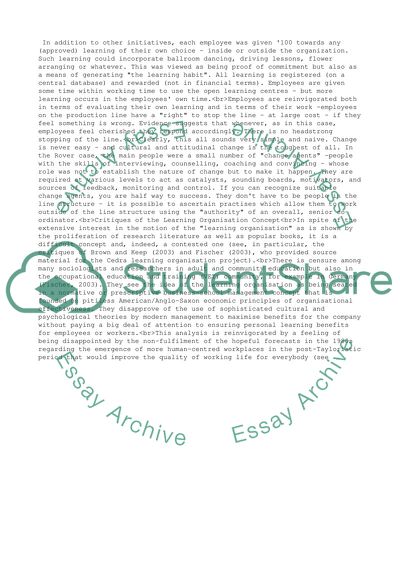Cite this document
(“Learning Organisation Case Study Example | Topics and Well Written Essays - 3500 words”, n.d.)
Retrieved from https://studentshare.org/business/1512004-learning-organisation
Retrieved from https://studentshare.org/business/1512004-learning-organisation
(Learning Organisation Case Study Example | Topics and Well Written Essays - 3500 Words)
https://studentshare.org/business/1512004-learning-organisation.
https://studentshare.org/business/1512004-learning-organisation.
“Learning Organisation Case Study Example | Topics and Well Written Essays - 3500 Words”, n.d. https://studentshare.org/business/1512004-learning-organisation.


